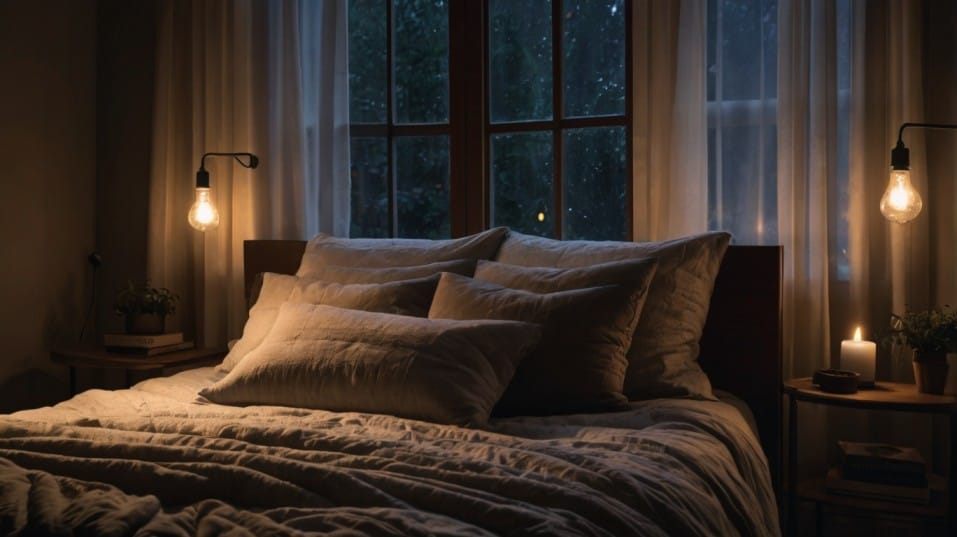Is Poor Sleep Holding Back Your Immune Resilience?
Struggling with energy or constant colds? Boost your immune strength with simple, science-backed sleep habits that actually work.

Ever wonder why you're still getting sick, even when you're doing everything right?
Clean meals, smart workouts, even immune supplements can only go so far if your sleep isn’t locked in. Quality rest is the real engine behind recovery, resilience, and energy.
If you’re dragging through the day or catching every bug going around, your sleep might be the missing link. The good news? It’s fixable—with smarter, simpler habits you can start tonight.
Why Sleep Is Your Immune System’s Secret Weapon
Your immune system doesn’t power down when you sleep. It actually gets more efficient. Deep, uninterrupted sleep is when your body produces and releases key immune cells like T-cells and cytokines.
These aren’t buzzwords—they’re the front line of your defense system. Cytokines help control inflammation and respond to infection. T-cells seek out and destroy infected cells. Without enough quality sleep, these vital functions start to falter.
One night of poor sleep won’t wreck you. But consistent, low-quality sleep keeps your immune response sluggish.
You might not feel it right away—but you’ll notice slower recovery after workouts, random fatigue, and more days where your brain just won’t focus. That’s your immune system waving the white flag.

The Circadian Clock Is Not Optional
Your body is hardwired for rhythm. Every major system in your body—including your immune system—follows your circadian clock.
Disrupt that rhythm and nothing functions at full capacity. Shift your sleep window by a few hours every weekend?
You’re throwing off hormone cycles that regulate everything from white blood cell production to inflammation control. To stay in sync, pick a consistent wake-up time and lock it in—even on weekends.
Your sleep pressure (the biological drive to sleep) builds more predictably, your melatonin production becomes more reliable, and your immune system operates in its natural groove.
The Melatonin-Immune Connection
You’ve probably heard of melatonin as the “sleep hormone.” What you might not know is that it also acts as a powerful antioxidant and immune modulator.
Melatonin doesn’t just make you sleepy—it influences how well your body responds to stress and infection.
But here’s the catch: light exposure blocks melatonin. Scroll your phone in bed under bright lights, and you’re telling your brain to delay melatonin release.
That shift doesn’t just keep you up later—it dulls the immune-boosting benefits your body relies on during early sleep stages.
How to Work with Melatonin Naturally
Try cutting overhead lights two hours before bed. Use lamps or red-spectrum bulbs instead. Shut down screens 30 minutes before sleep. These small changes reset your melatonin timing without needing supplements.
Heat, Cold, and Sleep Recovery
Your body temperature drops naturally at night to trigger sleep. If your room is too warm, you’re fighting that biological process.
Studies show that cooler environments (around 65°F or 18°C) support deeper stages of non-REM sleep—the ones where your immune system gets its real work done.
Optimize Your Sleep Environment
Take a warm shower an hour before bed. It sounds counterintuitive, but it helps your body release heat faster afterward, speeding up that pre-sleep cooldown.
Combine that with breathable sheets and minimal blankets, and you’ve created a recovery zone that works with your biology—not against it.
Fueling Immune Recovery Through Food Timing
Sleep and nutrition are closely linked, especially when it comes to immune resilience.
Your body repairs best when it has stable blood sugar and the right building blocks for recovery. Late-night sugar spikes or heavy meals can disrupt your sleep cycles and interfere with immune signaling.
Eat to Support Sleep
Instead, lean into balanced evening meals. Include protein to support overnight muscle repair and complex carbs to help your body convert tryptophan into serotonin, and eventually, melatonin.
No need for exotic sleep snacks—a simple plate of salmon, roasted vegetables, and quinoa does the job.
Stress and Sleep: The Feedback Loop
Chronic stress suppresses immune function—and poor sleep amplifies stress. When your body isn’t fully rested, cortisol (your stress hormone) stays elevated longer into the day.
Elevated cortisol, in turn, blunts immune response and makes it harder to fall asleep the next night. It’s a loop that drains you slowly.
Break the Cycle with Daily Cues
Break the cycle with short, practical routines. Ten minutes of box breathing before bed. A quick walk in natural light first thing in the morning.
A predictable bedtime. These tiny rituals signal safety to your nervous system, lowering cortisol and boosting melatonin naturally. No apps required. No perfect routine needed. Just signals your body understands.
What You’ll Notice When Sleep Starts Working for You
When you prioritize quality sleep, everything starts to click. Your energy feels clean, not caffeinated.
That scratchy throat that usually turns into a full-blown cold? It just fades. You recover faster after intense training. Your focus sharpens. Your mood evens out.
Why? Because your immune system is finally operating at full strength. You’re not just dodging illness—you’re building resilience from the inside out.
This is the edge people chase with supplements, ice baths, and endless biohacks. But sleep is the original performance enhancer—and it’s free.
Final Thoughts
You can’t outsource your recovery. You can’t skip sleep and expect your immune system to keep picking up the slack. But you can make sleep work for you—starting tonight. Cool your room.
Kill the screens early. Lock in your wake-up time. Stack those habits consistently, and you’ll feel your body respond in ways you didn’t think possible.
Better sleep isn’t just rest. It’s resilience. Hit reset tonight—and start training your immune system to show up stronger every day.




